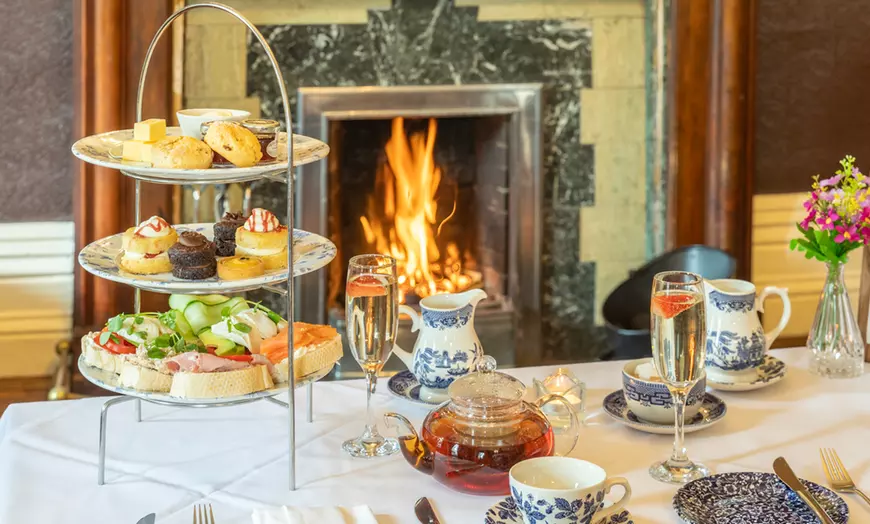Highlights
Savor sandwiches, scones, mini cakes, and a glass of Prosecco with a historic afternoon tea at the iconic Queen at Chester Hotel
About This Deal
Looking for an indulgent afternoon with a touch of elegance? Experience a slice of British tradition at the historic Queen at Chester Hotel. Savor a luxurious afternoon tea with delicate finger sandwiches, warm scones, and mini cakes, perfectly complemented by a glass of Prosecco. Why not treat yourself or a loved one to this timeless ritual in a setting that radiates both history and charm?
What We Offer
Luxury Afternoon Tea with Optional Prosecco for Two or Four
- Day validity: Every day between 12:00 p.m. to 4:00 p.m.
- Prosecco may be swapped for a soft drink.
- Visit the historic Queen at Chester Hotel for this most quintessential of English customs with our Afternoon Tea served daily in our Albert Lounge, the afternoon tea consists of a selection of finger Sandwiches, Warm scones with jam & clotted cream, Mini cakes and of course a range of teas. There is also an option to include a glass of Prosecco.
Why You Should Seize The Deal
The Queen at Chester Hotel, a historic gem dating back to 1860, has recently undergone a stunning refurbishment of its public areas, adding new splendor to its already magnificent charm. This iconic brick and stucco Italianate building once considered the first skyscraper of its time, was originally built to serve first-class rail passengers and has hosted illustrious guests like Charles Dickens, Cecil Rhodes, and Lillie Langtry. The hotel combines historic elegance with modern luxury, offering a unique blend of heritage and contemporary refinement.
Enjoy an afternoon tea tradition, steeped in history and dating back to the 1840s, when Anna, the Duchess of Bedford, introduced it as a fashionable social event. Today, The Queen at Chester Hotel continues this refined tradition, inviting visitors to indulge in the timeless experience of afternoon tea in an elegant setting that recalls the grandeur of the 19th-century.

























































